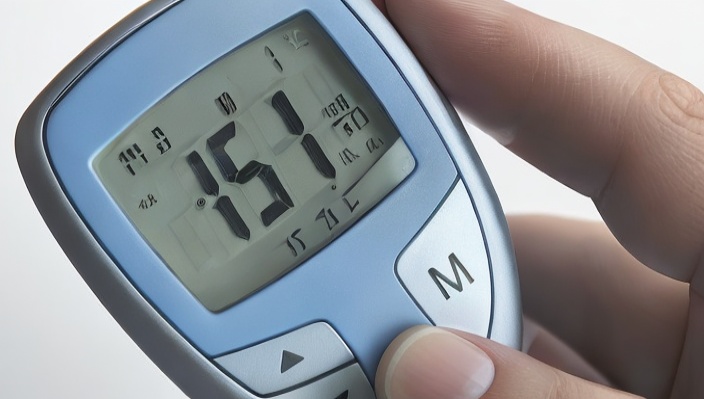Whether or not you have diabetes, elevated blood sugar can cause severe damage to your nerves, organs, and blood vessels. The real risk lies in prolonged high blood sugar, which can lead to significant health complications.

One reason many people struggle with hyperglycemia is a lack of awareness about its seriousness and the early warning signs their bodies give. Let’s explore some of these signs and the causes behind them.
Before diving in, don’t forget to hit the subscribe button for more daily health tips and turn on notifications so you never miss our latest videos!
Early Warning Signs of High Blood Sugar
1. Constant Thirst
One of the first signs of high blood sugar is persistent thirst, also known as polydipsia. This happens because your kidneys are overwhelmed by excess glucose and produce more urine to eliminate it, leading to dehydration. This is why you may feel the urge to drink more water, explains WebMD.
2. Increased Hunger
If your appetite has significantly increased, it could be a sign of high blood sugar, according to the Mayo Clinic. When glucose cannot enter your cells—due to insufficient insulin or insulin resistance—your body is unable to convert food into energy. As a result, you feel hungrier, even though your body isn’t properly processing the food you consume.
3. Frequent Urination
High blood sugar and frequent thirst are often accompanied by constant urination, known as polyuria. Excess sugar in your bloodstream forces your kidneys to work overtime to expel it, causing more trips to the bathroom. If you find yourself urinating hourly, it’s worth consulting a doctor to rule out other serious conditions, says the Mayo Clinic.
4. Chronic Fatigue
Contrary to what you might think, high blood sugar doesn’t provide extra energy. Instead, it can leave you feeling exhausted. Frequent urination and dehydration drain your energy, while the inability of glucose to enter your cells leaves your body without its primary fuel source, explains WebMD.
5. Blurry Vision
While this effect is often temporary, it’s essential to consult a healthcare provider for a proper diagnosis, as it could indicate other underlying issues.
6. Dry Skin
If you notice persistent dry skin, your blood sugar may have been elevated for a long time. High blood sugar levels can damage nerves and lead to rapid fluid loss, causing dryness. Prolonged hyperglycemia can result in severe nerve damage over time, WebMD warns.
7. Impotence
For men, high blood sugar can disrupt proper blood flow, which is crucial for achieving and maintaining an erection. It can also damage nerves and blood vessels, leading to issues with sexual performance.
8. Unexplained Weight Gain
High blood sugar levels are often linked to insulin resistance, where cells stop responding effectively to insulin. This resistance makes it difficult for your cells to absorb glucose, causing sugar to build up in the bloodstream and potentially leading to weight gain, according to Livestrong.
What Causes High Blood Sugar?
1. Poor Diet
Foods that are highly processed or calorie-dense digest quickly, causing blood sugar to spike. These same foods can also raise bad cholesterol levels, which further complicates health issues, explains WebMD.
2. Lack of Exercise
Exercise does more than improve your heart rate and strengthen bones—it keeps your muscle cells sensitive to insulin, which helps regulate blood sugar levels. Without regular physical activity, you increase the risk of insulin resistance, says WebMD.
3. Stress
Chronic stress can also elevate blood sugar levels. Stress hormones like cortisol can trigger glucose release, leading to a spike. If you’re feeling overwhelmed and also experiencing high blood sugar, it may not be a coincidence, WebMD explains.
What to Do Next
It’s important to remember that these signs could also indicate other health conditions. For example, symptoms like fatigue or dry skin may result from something as simple as dehydration or a common cold.
Avoid self-diagnosing. They can provide accurate diagnoses, medication, and treatment options tailored to your needs.
